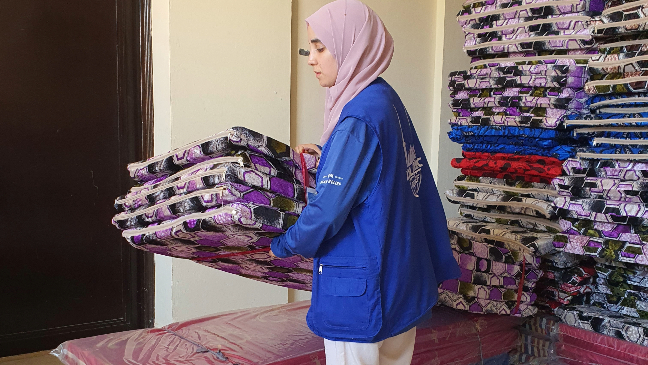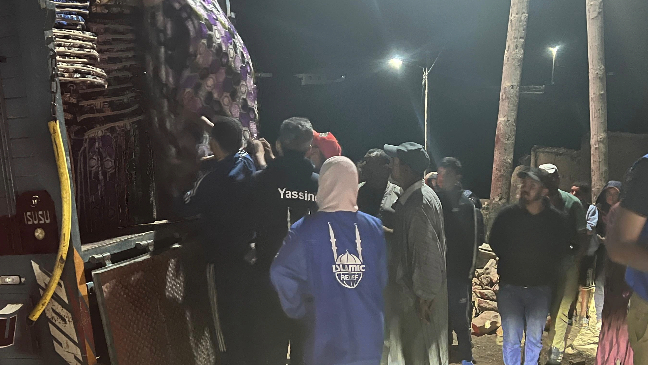Islamic Relief has launched a S$17 Million appeal to assist the people of Morocco, who face the aftermath of one of the strongest earthquakes in years.
High Atlas mountain villages at the earthquake epicentre
Many of the dead are thought to be in remote villages in the High Atlas mountains, the epicentre of the earthquake. The epicentre was in the High Atlas Mountains, 71km (44 miles) south-west of Marrakesh, at a depth of 18.5km. The earthquake killed people in the provinces and municipalities of al-Haouz, Marrakesh, Ouarzazate, Azilal, Chichaoua and Taroudant.
Some of these villages have been completely flattened and whole families wiped out.
Residents are using whatever equipment they can find as they struggle to reach their neighbours under the rubble. Blocked roads are preventing ambulances from reaching the wounded, and while officials are scrambling to clear debris, rescue and relief efforts are difficult amid the mountainous terrain, risk of landslides, and large distances.
Aftershocks have left families too frightened to seek shelter, with exhausted survivors forced to sleep in the streets.
Schools, hospitals and other medical and educational facilities have also been damaged or destroyed across the affected area.
The government is taking urgent measures to address the disaster including strengthening their search and rescue teams to find survivors, providing drinking water and distributing food, tents and blankets.
 Image: Hassaan Ghani Sheikh from Islamic Relief visiting the village of Tagadir, in Chichaoua, where 17 people died.
Image: Hassaan Ghani Sheikh from Islamic Relief visiting the village of Tagadir, in Chichaoua, where 17 people died.
Donate Zakat to Morocco Earthquake Emergency Appeal
Historic Marrakech badly damaged
The earthquake, which was felt as far away as Algeria and Portugal, also shook historic Marrakech, the nearest major city to the epicentre. Homes and other buildings in the UNESCO World Heritage Site have collapsed.
Aftershocks have left families too frightened to seek shelter, with exhausted survivors forced to sleep in the streets.
Occurring just 11 miles beneath the surface, the shallow earthquake was magnitude 6.8, according to the US Geological Survey (USGS).
Islamic Relief’s response
Through our assessments so far, Islamic Relief has identified that the main needs are providing those affected with sufficient food to eat and temporary shelters for those whose homes have been destroyed. Nights are cold in the mountains, and conditions are expected to worsen with winter looming, so survivors are in urgent need of blankets.
We have launched a major $17 million emergency appeal to provide aid to survivors of the devastating earthquake in Morocco.
We are partnering with local humanitarian organisations to deliver aid, in coordination with the Moroccan authorities who are leading the overall response.
So far we have distributed mattresses and blankets to survivors in remote mountainous areas who are still sleeping outside after the devastating earthquake.
Islamic Relief has extensive experience responding to disasters around the world. We recently helped more than 1 million people affected by the earthquake that struck Turkiye and Syria in February 2023.
Stand with survivors by supporting our life-saving work: Donate now to our Morocco Earthquake Appeal
 Image: Image: Islamic Relief staff member Hana Elabdallaoui arranging mattresses ready for distribution.
Image: Image: Islamic Relief staff member Hana Elabdallaoui arranging mattresses ready for distribution.
 Image: Islamic Relief staff distribute mattresses and blankets in Tadcherte.
Image: Islamic Relief staff distribute mattresses and blankets in Tadcherte.